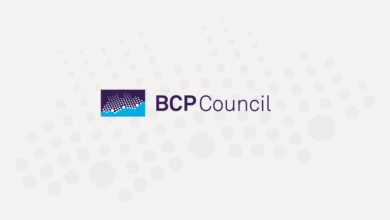Useful advice for practicing language learning effectively, establishing valuable language habits, and conquering the challenges of the “forgetting curve.”
Have you ever heard of someone learning a new language in just one day? Yeah, me neither. That’s because stories like that don’t really exist. When it comes to learning languages, we often hope for a quick and easy solution – a magic trick. But the reality is, learning a new language takes time and effort.
But here’s the good news: Learning a language doesn’t have to be boring or hard. If you do it the right way, it can be an exciting journey that opens up new opportunities and introduces you to amazing people. Let us guide you on how to make it happen.
The problem: the forgetting curve
Think back to your history class. Do you still remember everything about the Roman Empire? Or how about the chemical bonding you learned in science class? Unless you use that knowledge in your job or daily life, chances are you don’t.
The same goes for learning a new language. If you don’t regularly practice and engage with the language you’re trying to learn, you’ll likely forget a lot of what you’ve learned. This is what’s known as “the forgetting curve,” a concept introduced by Hermann Ebbinghaus. According to this idea:
- After one day, we remember only about 33% of what we learned.
- After two days, it drops to 28%.
- After six days, it’s down to 25%.
- And after 31 days, we retain only about 21%—which is roughly 1/5 of what we originally learned on day one.
Now, let’s apply this to language learning. Imagine you learned ten new words to boost your vocabulary. If you don’t review them in the following days or weeks, according to Ebbinghaus’ curve, you might only remember about three words after the first day.
To be successful in learning a language, you need to regularly revisit and review what you’ve learned in the days and weeks that follow. This way, you’ll reinforce your memory and be better equipped to learn new material.
The 3 C’s of effective language learning
Commitment

Learning a language is a bit like trying to lose weight—it’s not a quick fix. It involves adopting daily language habits that you commit to doing every day. These small, consistent practices lead to gradual achievements, ultimately helping you reach your main goal: learning a new language.
Taking charge of your learning means asking yourself, “How do I hold myself accountable?” Setting goals is a powerful way to do this. SMART goals, in particular, have specific characteristics:
- Specific: Clearly define what you want to achieve and when.
- Measurable: Decide how you’ll measure your progress, like through online quizzes or language proficiency tests.
- Achievable: Make sure your goals are realistic based on your current language level and available study time.
- Relevant: Choose goals that align with your language learning purpose, such as for travel, work, or school.
- Time-Bound: Set clear deadlines for your goals.
Modern learners often feel “time poor,” juggling work and personal lives. It’s crucial to avoid “zero days,” where you have no interaction with the language. Even dedicating just 15-30 minutes a day to small tasks can lead you to your overall language goal.
Instead of getting overwhelmed by the big goal of “learning a foreign language,” break it into smaller, achievable SMART goals. This way, you can make progress through daily activities and tasks. Need help planning? Start now with our guide on creating the perfect study schedule!
Classes
Since language is the primary tool for human communication, it’s no surprise that human connection plays a crucial role in effective language learning. Overcoming “the forgetting curve” becomes easier when you work with peers, colleagues, and tutors. By practicing the language with others, correcting mistakes, and learning from them, you can enhance your language skills. As Daniel Coyle, author of The Talent Code, emphasizes:
“There is, biologically speaking, no substitute for attentive repetition. Nothing you can do is more effective in building skill than executing the action, firing the impulse down the nerve fiber, fixing errors, honing the circuit. “
Traditionally, language learners were thought to develop speaking skills as a by-product of studying grammatical theory in classes. However, a 2017 study from Cambridge University revealed that meaningful communication between students and teachers in the target language significantly boosts language learning. These interactions not only improve learners’ sense of achievement but also enhance their motivation.
Repeating what you’ve learned—whether it’s pronunciation, vocabulary, or grammar—to another person helps reinforce your memory of that information. This exchange not only improves your recall but also builds self-confidence, acting as a defense against “the forgetting curve.”
In essence, language learning is fundamentally a human pursuit. Having someone, like an online language tutor or in-person instructor, to accompany you on this journey can make a significant difference. Tutors can help you stay accountable to your goals, adapt their teaching style to your preferences, provide meaningful feedback, and offer the human connection that language learning thrives on—something you can’t get from an app!
Continuous Learning

Moving up from one language proficiency level (CEFR) to the next takes time—it’s not a quick process. That’s why maintaining a positive attitude is crucial in your language journey. Look for joy in those “Aha!” moments and celebrate the achievement of small goals. Remember, every little task brings you closer to mastering a new language.
If you ever feel your motivation waning, try exploring different language activities that spark your interest. Focus on content you already enjoy, so it doesn’t feel like a chore. Here are some suggestions:
- Read Stories: Reading stories you find interesting can boost your reading comprehension skills and expand your vocabulary at a faster rate. It also helps you understand words in various contexts and exposes you to common idioms and phrases used by native speakers.
- Listen to Podcasts: Listening to podcasts not only improves your listening and speaking skills but also enhances your grammar, pronunciation, and vocabulary. The ability to pause and replay audio files gives you the freedom to direct your own learning and go at your own pace.
- Keep a Language Journal: Maintaining a language journal offers many benefits, such as tracking your progress, incorporating what you’ve learned into your writing, recording important words and ideas, and reviewing old concepts. If you’re working with a tutor, they can use this tool to identify errors and create a personalized learning plan for you.
Approaching language learning with positivity, finding enjoyment in the process, and exploring diverse activities can make your language journey more rewarding and effective.
Conclusion
Learning a language is more like running a marathon than a sprint. It requires regular and persistent practice to make progress on this journey. However, it can be a rewarding experience if you stick to a personalized plan, set specific SMART goals, collaborate with language specialists, and find joy in the challenges.
To kickstart your language adventure, consider searching for an expert tutor or learning how to choose the right tutor for you. By applying the tips and hints provided in this article, you can overcome the “forgetting curve” by staying motivated and persistent. Good luck on your language-learning journey!





